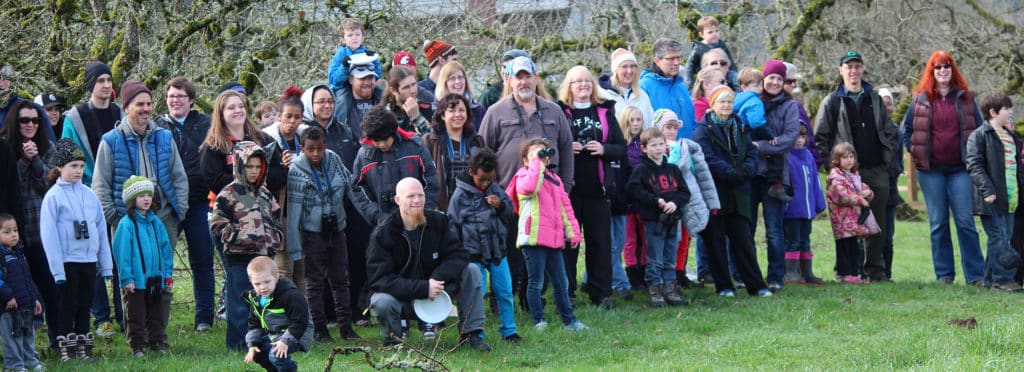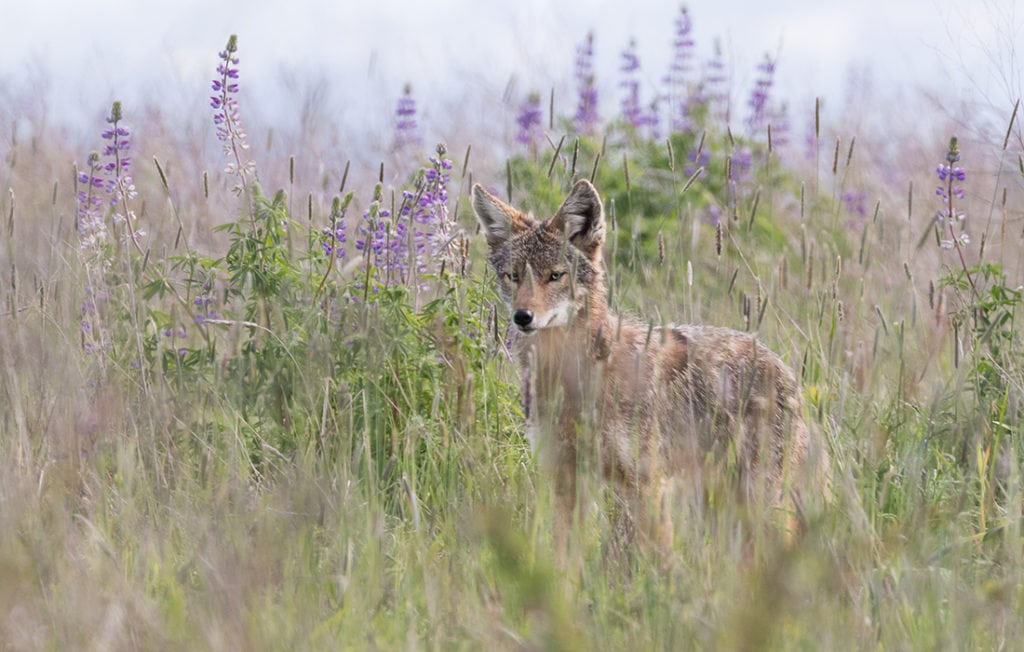
The other sibling had unusual bone formation of both legs, and follow up X-rays revealed old, improperly healed folding fractures. Folding fractures are a special kind of fracture that we usually see in animals that have not had proper nutrition. They are particularly common in young animals that have been raised by untrained people, but they can also occur when parents are unable to provide high enough quality food for all their offspring. This might happen when there are more babies than the parents can feed, or the parents are young and inexperienced. It can also happen when people feed wildlife incautiously, and the parents rely on the easily obtained food that isn’t necessarily nutritionally balanced (eg. feeding peanuts to crows). We don’t know the exact cause in this case, but it could be related to the unseasonably early timing of this particular clutch of owlets (we generally receive screech owlets in late April/May).
In this case, the folding fractures are already healed, and although we will continue to raise both birds, we don’t yet know whether the owlets will be able to use their injured legs well enough to hunt and get around in the wild. We are hopeful, but their prognosis is guarded.
I cannot stress enough how important it is to get injured and orphaned wildlife to a licensed wildlife rehabilitator as soon as possible, and I hope that these two owlets help demonstrate why. Not only do we need to ensure they receive the nutrition they need to prevent folding fractures and other complications of untrained care, but we are much more successful treating fresh injuries. Fractures may or may not be obvious, and always need quick attention. Bird’s bones are hollow, which allows them to begin healing quickly. This may sound like a good thing, but only if the bones have been set to heal properly. Many times a year we are brought injured animals that had been kept for multiple days, sometimes weeks, before being brought to us. Unfortunately by that time, the injuries have already started healing, limiting our treatment options and putting the animal’s future at risk. In addition, the animal will have spent that time without pain management, greatly increasing their suffering. This is especially heartbreaking considering the kind intentions of the rescuers.
Western Screech Owls are compact little owls with big yellow eyes, short tails, small ear tufts that may be erect or held flat with other head feathers, and streaky underparts. The base color of their feathers can vary from reddish, to brown, to gray helping them camouflage with the trees they reside in. They roost during the day inside of tree trunks, and come alive in the night to hunt for food. They sit and wait, watching and listening from the tree branches above, before swooping down to catch their prey. Despite their small stature, Western Screech Owls are carnivores that regularly feast on small mammals, but can also take advantage of birds, fish, reptiles, amphibians and invertebrates. They are a year-round resident in low-elevation areas of Oregon, commonly inhabiting forests, parks, and suburbs.

How To Help
-
- Western Screech Owl populations are in decline in our area due to habitat loss. Consider adding a nestbox to your yard if you have outdoor space.
- Or better yet, support habitat protection for the greater good of all wildlife, the environment, and people. Become an activist, or perhaps start in your own backyard by checking out the Backyard Habitat Certification Program.
What to Do If You Find an Ill, Injured, or Orphaned Animal
-
- Spring is beginning, which is the start of our busy baby season here at the Wildlife Care Center! Knowing how to tell if a wild animal is truly in need of help will save you and us a lot of time. The biggest mistake people make is seeing a healthy fledgling on the ground and thinking it needs help. This leads people to unintentionally kidnap a young animal that is still being cared for by their parents. Most people don’t know that fledgling birds, including young owls, typically spend about a week on the ground as they develop the strength to fly. If you find a baby bird and you are unsure if it needs help, you can call our hotline for advice on your specific situation before intervening. You can also view our detailed information page on what to do if you find a baby bird.
-
- If you find an injured or ill animal, or a young animal you are certain is orphaned, the best thing you can do is contain the animal in a securely closed (but ventilated) box and keep the animal quiet and undisturbed until you can transport it to your closest wildlife rehabilitation facility. Do not offer food or water.
Bird Alliance of Oregon’s Wildlife Care Center accepts new patients from 9 a.m. – 5 p.m. every day. You can also leave a message on our Wildlife Hotline at (503) 292-0304 or email wildlife@birdallianceoregon.org and one of our wildlife solutions counselors will get back to you and provide advice for your specific situation.
_______________________
Unfortunately due to COVID-19 we had to operate our Wildlife Care Center this past year with about 20% of our normal staffing and with about a 25% increase in our annual patient admissions. We were left with the difficult but necessary decision to discontinue providing follow-up updates on patients brought into our center so that we could focus on the daily care of the animals. And while we simply cannot write a story about each animal, our goal for this fresh and bright new year is to show you what we can: in the form of a weekly patient update! Check in every Thursday for our “Patient of the Week”; with information on the species, the circumstances that brought the animal in, and preventative advice so you can be a better steward for our wildlife!
If you’d like to contribute to the Wildlife Care Center, please consider making a donation here. Your support helps us save lives.



